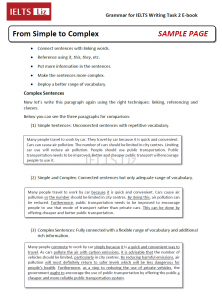Below you can find the answers to the reading practice lesson about Butterflies. If you have not completed this lesson, please do so before looking at the answers. Click here to go to the lesson: Butterfly Reading Practice
Below check the questions and answers.
Questions
- About 50% of Monarch butterflies migrate.
- Migration skips only one generation.
- Migration paths are innately known in Monarchs.
- Monarch butterflies feed on milkweed.
- Milkweed dense zones are popular breeding spots.
- Monarch butterflies are toxic to predators.
- The Monarch butterfly is widely distributed in Canada.
- Monarch butterflies are driven to the Pacific coast in order to survive.
- Monarchs are able to survive icy weather under certain conditions.
Answers
- NOT GIVEN
- No information exists in the passage to confirm or deny a percentage of Monarchs migrating.
- FALSE
- The passage tells use that “several summer generations will have lived and died” before it is time for migration.
- TRUE
- This information is found here: “new generations are born to know the way, and follow the same routes their ancestors took”
- FALSE
- The passage shows that the caterpillars feed on milkweed and the butterflies (adults) feed on nectar.
- “monarch caterpillars feed almost exclusively on milkweed and as adults get their nutrients from the nectar of flowers”
- TRUE
- The information is found here: “monarch will always return to areas rich in milkweed to lay their eggs upon the plant.”
- FALSE
- The passage shows that the butterflies are not toxic. Toxic means that the butterflies kill the predator when eaten. However, the passage shows that the butterflies only taste bitter.
- “the monarch butterfly taste so terrible to predators”
- The information in the passage is about the milkweed is a toxin which is stored in their bodies. This does not indicate that the butterfly is actually toxic to the predator – only that their bodies contain toxins. These toxins are what make them taste bitter.
- This question really tests your attention to detail.
- FALSE
- The monarch is widely distributed across North American, but in Canada, it is only found in the south.
- NOT GIVEN
- We know they are spread in area with milkweed, but the passage says nothing about whether it is for survival.
- TRUE
- Monarchs can survive icy weather if they are dry. But they can’t survive icy weather if they are wet. This means they can survive icy weather under certain conditions, which means in specific situations.
I hope you enjoyed this reading lesson. The TFNG questions can be challenging, but if you pay attention to detail and make sure you understand the fully meaning of the statement before looking for the answer, you can conquer 🙂 If you got some answers wrong in this lesson, I hope the explanation above will help you understand why and help you improve 🙂
For more reading lessons, see this page: IELTS Reading Practice & Tips
All the best
Liz
Subscribe for Free to get New Posts by Email













